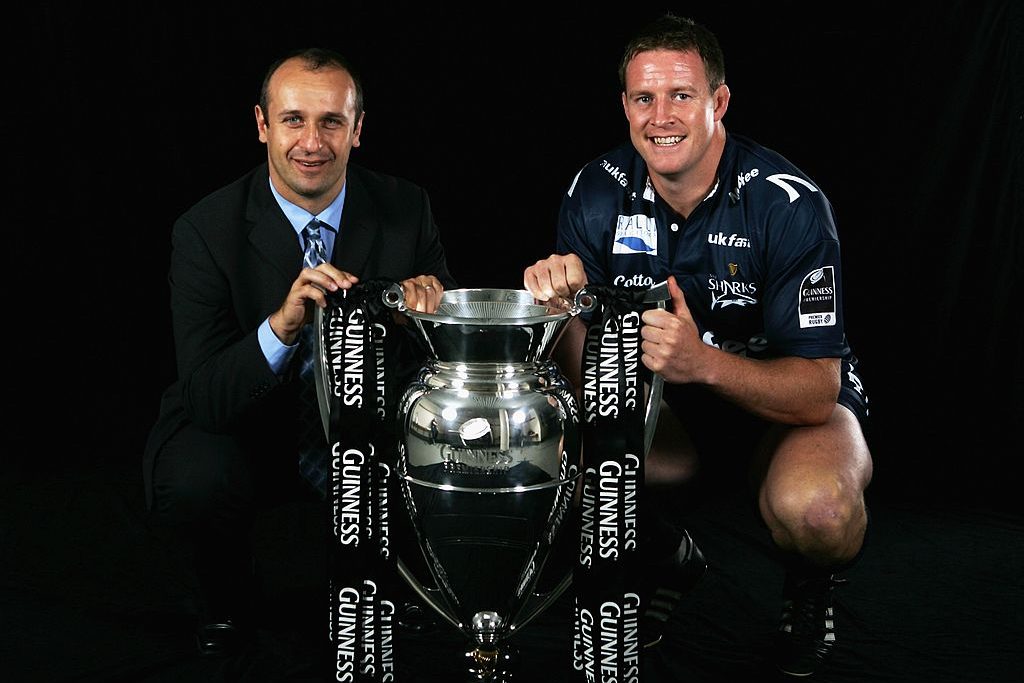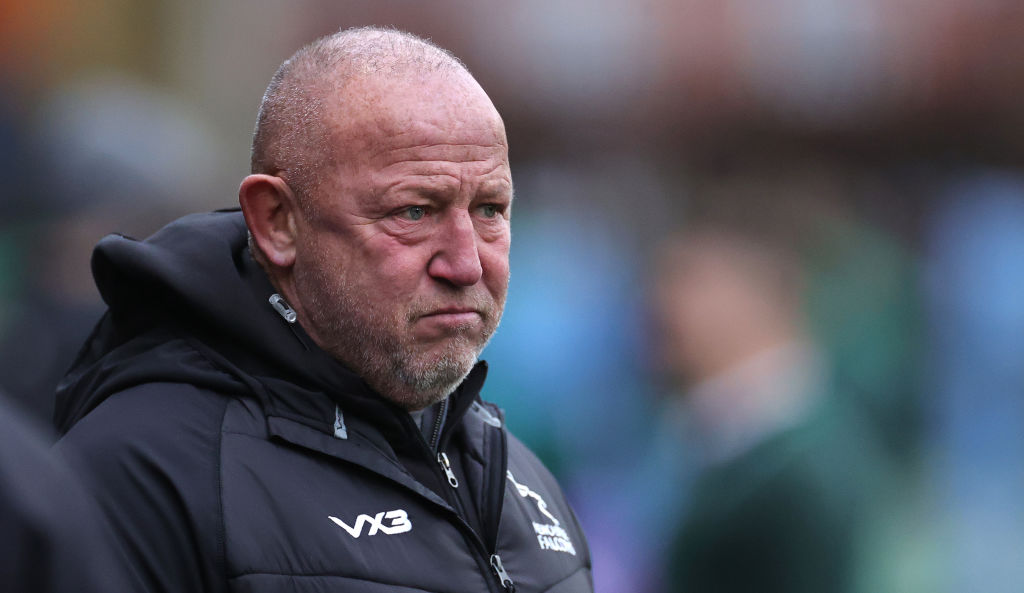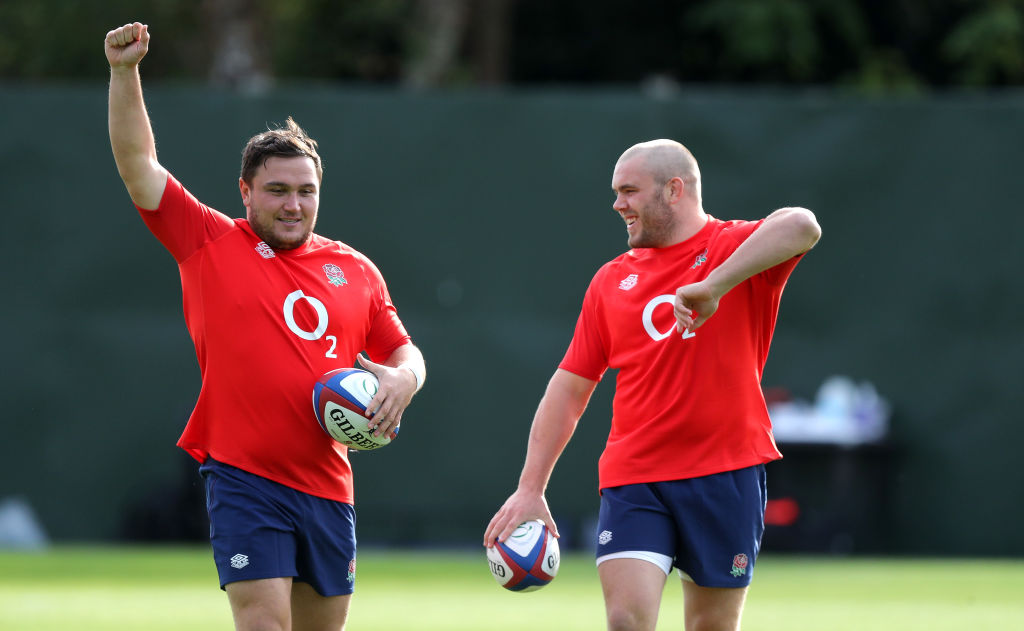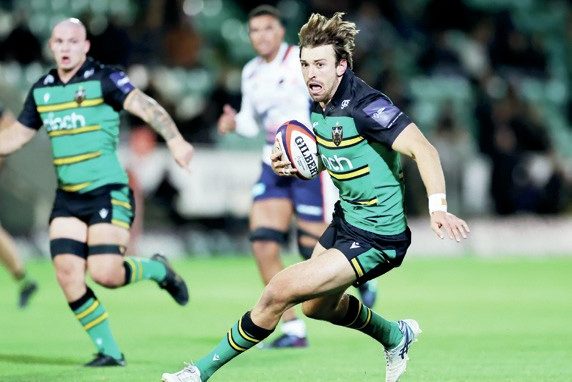
Conor O’Shea, director of rugby at Harlequins, tells Neale Harvey how the Twickenham Stoop outfit are shaping up ahead of the new season.
 Fourth place, but no trophy in May. What was your assessment of Quins’ campaign?
Fourth place, but no trophy in May. What was your assessment of Quins’ campaign?
We set our goals to win things and ultimately we didn’t, but in many ways there were huge positives to take, both mentally in terms of the will within the group to make the top four and some of the rugby we played. In the end we fell short but it shows how far we’ve come as a group that the feeling you have is one of disappointment. There are plenty of teams that would have liked to have been where we were but we want to take that step forward and do better. We’re working harder than ever to find those tiny margins between success and failure.
Describe some of the positives you’re referring to?
We blooded a huge amount of youngsters last year and their step-up this year will be massive for that. The competition in our squad now is immense. For example, at tighthead prop we’ve got Will Collier, Kyle Sinckler and Paul Doran-Jones going toe-to-toe, while the rivalry between Rob Buchanan, Dave Ward and Joe Gray at hooker will be interesting. At lock we’ve got George Merrick and Sam Twomey challenging George Robson and Charlie Matthews, while the likes of Jack Clifford and Joe Trayfoot are set to make a real impact alongside Nick Easter at No.8. It’s the same out wide and we’re really excited about next season.
The same four teams – yourselves, Saracens, Leicester and Northampton – have contested the play-offs for the last three years. See any change to that?
It might have been the same four teams but it’s certainly not just a top four anymore, there’s a whole plethora of clubs that can make that step. It’s not easy to be in that top four and we had to win our last five games, with a lot of strain on our squad to do it. There’s an expectation that surrounds us, Leicester, Saracens and Northampton now, but there will be for Bath, Gloucester and Exeter as well this year, while London Irish have recruited strongly in their tight-five and Newcastle will look to continue what they’re doing under John Wells. To be able to stay in that top group and compete, we’ll have to be better than we’ve ever been.
Would you consider Northampton and Saracens to be a step ahead of the rest right now?
Whoever wins is a step ahead but if you look at the Premiership over the last three years, in the regular season Saracens have won 52 of 66 games, Quins 47, Leicester 45 and Northampton 44, but Saracens haven’t won the Premiership which proves how tough it is. Northampton were outstanding all season but scored in the 79th minute to win their semi-final, then in the last minute of extra-time to beat Saracens. If you don’t do that, you’re judged differently and those are the fine margins we all operate under. That’s the challenge this year but I know we’ll be hard to beat.
Quins were badly hit by injuries last season. Can you put your finger on why?
We’ve reviewed the last three seasons and a lot have been long-term trauma injuries. We’ve analysed our training loads, the physio and conditioning department and everything we’re about and we’ll make a few tweaks, but when you get three or four serious injuries right at the start of the season, as we did with Ross Chisholm, Ollie Lindsay-Hague and Sam Smith, it impacts on the workloads of other players and compounds things. Having said that, the mental belief and the fortitude of the group was terrific and we should have more belief going into the new season than we’ve ever had before.
You’ve kept recruitment to a minimum, signing only Marland Yarde and Asaeli Tikoirotuma. Why so few incomings when you’ve lost seven?
People talk about signings but we’ve already got a team that contains Marler, Brown, Robshaw, Care, Yarde, Evans, Easter, Robson, Wallace and Co. It’s not a bad side and if we get the others I’ve mentioned like Trayfoot, Clifford, plus James Chisholm and Charlie Walker, coming back in at 100 per cent, we know the sort of impact they’ll make. That’s the way we run it here and the great thing about developing your own players is that they’re good value for a time, then they reach full market value. We invest in our own and I’m probably more excited than I was four seasons ago because of the marriage of this young crop with the ‘older’ fellas like Chris Robshaw, George Robson and Danny Care, who are just 27 or 28. The Wallaces, Marlers and Colliers are at the same stage they were three or four years ago and it’s time for them to step up and step through. There might not be many signings, but the competition here is huge.
Can Jack Clifford begin to challenge Nick Easter’s hegemony at No.8?
We’ve got Joe Trayfoot as well, don’t forget, and we’re really excited about both of them. Jack made waves last year, both internally and with England U20s, but then suffered a medial knee ligament injury before damaging a hamstring. But he’s in great shape now and I’m just looking forward to the competition and seeing the impact someone like him will make. You come across good players from time to time and then you come across players who’ve got an X-factor and who really make you sit up and take note. Jack is one of those players.
A lot rides on fly-half Nick Evans, who is 34 in August. Have you any succession plan in place?
The succession plan is Nick playing this year and next, there’s no issue there. A lot rides on all pivotal players and when you’ve got an aura and a career like Nick, people obviously look to him. Big players win matches and, ultimately, when you reach the key moment, they’re the people you want. But Ben Botica has played 52 games over the last two seasons, mostly off the bench, and picked up a lot of experience, while young Louis Grimoldby has really impressed everyone here with his work ethic and diligence. Ben carried an injury for much of last season but will push on now because he’s an outstanding ball player and goal-kicker. He’s just learning the game-management side.
Would you consider dropping Chris Robshaw if Luke Wallace plays out of his skin?
(Laughs) No. Chris is an unbelievable player and that’s the competition, but when you look at how many games they’ll all play this year, with people away with England and the various competitions, there’ll be plenty of rugby for everybody. Our biggest challenge is to make sure we’re as fit and fresh as possible as a group – and that includes the coaches. All the coaches this summer have been to different places to pick up new things. Tony Diprose went to Australia, John Kingston went to South Africa, and myself, Mark Mapletoft and Collin Osborne went to America. That keeps us fresh and it’s no different with players. You’re going to have people unhappy over selection because you can only pick 15, but everybody will play their part next season.
Tell me about your American trip?
We spent a bit of time with NFL side Philadelphia Eagles. Collin Osborne has been doing some work with GlaxoSmithKline on cognitive learning tools, which enable off-feet training and will, hopefully, be a first in rugby. The Eagles have been using it, too, so we went over to have a look. They play a really high-tempo offence so we looked at how they do their coaching. Two totally different sports but you can always take things from them.
Luke Wallace commented recently that Quins at times needed to rein in their high-tempo style and be more accurate. Concur?
People talk about high-tempo and us ramping it up to 120mph all the time, but that’s not what we’re saying. Our whole process is about how we control tempo so that we do things on our terms, so we’re challenging the players to make our accuracy levels higher. There are times when you can’t play like that and need other strings to your bow, but that’s part of our style. We talk about being unpredictable and one of the reasons John Kingston went to South Africa was to help us develop our forward play. Our maul went well last year and our scrum should really ramp up this year for the experience and man-strength some of our younger players have gained. It should be fun!
It’s seven years since an English team won Europe’s top prize, which French and Irish teams have dominated. Can an English side win the ERCC?
It’s hard but Saracens proved what they could do by beating Clermont and reaching this year’s final. Toulon are pulling together a team of galacticos but on any given day things can happen in matches and Cardiff beat them. English teams are becoming more competitive and you’ve only got to look at how many of our teams were in the quarter and semi-finals last season. Saracens, Bath and Northampton reached finals, Wasps twice beat a very good Stade Francais side and we defeated Racing Metro home and away. We’re always unbelievably competitive and you’re going to see teams get stronger.
Why are you so convinced of that?
Ask yourself what contribution English sides are making to the national team, both in the long and short-term. With the strength of England U20s and what’s coming through there, our clubs will get stronger across the league. I’m sure some people in football would wish they had that system and I’m sure it will produce competitive, winning club sides in Europe, too.
What was your opinion of England’s summer tour to New Zealand?
I thought they did exceptionally well, because it was ridiculous to ask anyone to go in those circumstances at the end of the season, given the nature of the selections and how players had to be integrated as the tour went on. You’d hope that will never happen again. There are a few areas of selection that Stuart Lancaster will want to batten down but England did enough in the first two Tests to say they’re massive contenders for RWC 2015. Should they have won one of those first two games? Yes, without a doubt, and they’ll have been unhappy to have left being badly beaten in the third game. But that can be a good driver as well and looking one year ahead, with a full preparation, in front of a home crowd, with a fully fresh side, I’d feel pretty comfortable.
What’s the biggest challenge Stuart faces ahead of RWC 2015?
Managing the build-up. You look at the football World Cup in Brazil and it’s about keeping a lid on things and not overreacting. The players must first and foremost think about their clubs and their club form because if they don’t play well, they won’t get picked. It’s a tough autumn series ahead but this is all about October 2015 for Stuart now, because that’s when judgment day takes place. He’ll need to manage the approach to that and shield the players from the pressures. It’s going to be incredibly exciting when it happens and the World Cup is getting bigger and bigger, but we all need to focus on our own jobs first.
You’re a huge fan of the EQP system at Quins. Is English rugby heading the right way?
It’s the way we run our place and we grow our own. There’s no right or wrong way, I guess, but if you look at the Premiership, it’s full of English talent and you only have to look at England U20s winning the last couple of Junior World Cups to see all that coming through. You saw New Zealand winning it all the time and look what they went on to do. Now it’s England’s turn.
Are you in it at Quins for the long haul?
I love it here. You look at this group of players we have, what’s coming through and the experience some of them have, and think, ‘wow!’ It’s the club’s 150th in a couple of years and there are huge plans as well, so as long as they want me I’ll stay. I’m just so excited about this current crop and I’m looking forward to them being better than they’ve ever been.
*This article was published in The Rugby Paper on July 13


Latest News
Magnifique! Another Grand Slam for Red Roses

Latest News
Luke Northmore still in the England reckoning





















You must be logged in to post a comment Login